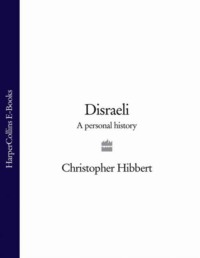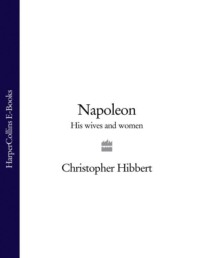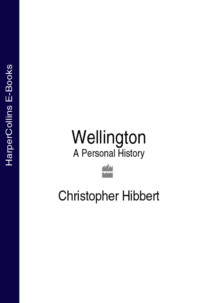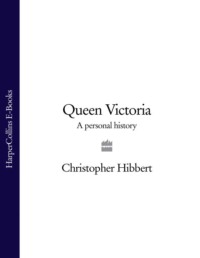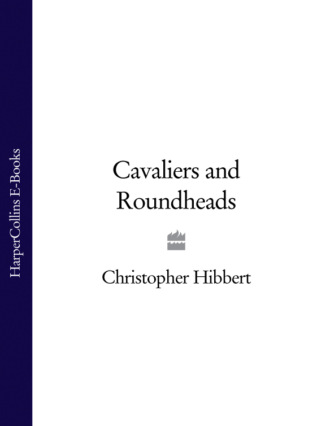
Полная версия
Cavaliers and Roundheads
Unable now to raise money through the House of Commons, the King was reduced to finding other, more direct means of support. Disregarding Parliament’s refusal to grant him the Crown’s traditional customs duties, he ordered their collection; he imposed a capital levy, had those who refused to pay it imprisoned, and dismissed the Lord Chief Justice for questioning its lawfulness.
The immensely expensive failure of the Duke of Buckingham’s expedition to France in 1627, however, obliged the King to summon Parliament again in the hope that its Members would recognize the common danger. But the danger, as the Commons saw it, came not from the country’s enemies abroad but from what they took to be the tyranny of the King at home. They refused to grant money to him until they had set out their grievances, in particular their condemnation of taxation without Parliamentary consent and imprisonment without due legal process. They incorporated their grievances in a Petition of Right of 1628 which they presented to the King for his assent as though it were a statute. Declining to bestow such authority upon it, the King said that he would be graciously pleased to accord it his ‘royal word’. The Commons, unwilling to trust his word, expressed their dissatisfaction with the formula and returned with renewed vigour to the condemnation of the Duke of Buckingham, whom they saw as the chief source of all their misfortunes. In an attempt to save his dearest friend, Charles gave way and, calling upon the Commons to attend him in the House of Lords, he signified his formal assent to the Petition, adding with petulant self-justification, ‘This I am sure is full, yet no more than I granted you on my first answer. And I assure you that my maxim is that the people’s liberties strengthen the King’s prerogative and that the King’s prerogative is to defend the people’s liberties…I have done my part, wherefore if the Parliament have not a happy conclusion the sin is yours. I am free of it.’
Overlooking his ill grace and overcoming their irritation at his implied rebuke, the Commons rose to their feet and accorded him ‘such an acclamation as made the House ring several times’. Their cheers were repeated in the streets outside where ‘a general joy in all faces spread itself suddenly and broke out into ringing of bells and bonfires miraculous’. Yet, if the King was forgiven for the time being, the Duke of Buckingham was not; and the campaign against him, both inside and outside Parliament, gathered momentum. Hundreds of handbills were printed and passed from hand to hand in the streets: ‘Who rules the Kingdom? The King. Who rules the King? The Duke. Who rules the Duke? The Devil.’
As week passed week that summer of 1628 the rage of the people against Buckingham grew more and more intense. In June a physician and astrologer whom he was known to consult was battered to death in the street; and in August the Duke himself was murdered at Portsmouth by a lonely and embittered officer, John Felton, to whom he had refused promotion.
Charles was at prayers when the grievous news was given him. He remained kneeling, his pale face drawn and tight, as his chaplain continued with the service. When it was over, he went to his room and threw himself sobbing across his bed. He could never forgive the man whom he blamed for his death, that ‘wicked rebel’ Sir John Eliot who had so viciously attacked Buckingham in Parliament, comparing him to Sejanus, the evil counsellor of the Emperor Tiberius. The King ordered that Buckingham’s murderer should be ‘put to the question’ to force him to reveal his accomplices. The lawyers declined to sanction the use of torture, and Felton was executed at Tyburn, protesting that he had acted alone, ‘not maliciously but with love of his country’. Yet, in the King’s mind, Felton remained Eliot’s creature; Eliot’s was the ultimate responsibility. He would soon be made to pay for it.
Eliot took his seat in Parliament again in the January following the Duke’s death, determined to maintain the principle that the Commons had a right to criticize the King’s incompetent or misguided counsellors; but, sensing the advantages of allying the growing Puritan enthusiasm in the country with demands for political change, he and his friends changed the emphasis of their attack. They now moved against the King on religious grounds.
They had numerous and varied complaints: he had presented to a Crown living a clergyman who had declared that refusal to pay the King’s forced loans was not merely a crime against the state but a sin against God; he had transferred one of his High Church chaplains to the see of Chichester; he had appointed William Laud, a well-known opponent of the Puritans and advocate of the scandalous doctrine that the Roman Church was one of the true churches of Christendom, Bishop of London; he had appointed one of Laud’s closest allies, William Juxon, who was to succeed Laud as Bishop of London, Dean of the Chapel Royal; and he had given intolerable provocation to the Puritan gentry in the Commons by declaring that the affairs of the Church of England were nothing to do with Parliament.
Charles’s own position was clear enough. He had read with approval and admiration the Bishop of Chichester’s Appelo Caesarem which identified Popery with tyranny and Puritanism with anarchy, and which concluded, ‘poperie is originall of Superstition; puritanisme, the high-way into prophaneness; both alike [are] enemies unto piety.’ This stated his own views precisely. They were much like those of his father and of his father’s predecessor, Queen Elizabeth. In a speech to Parliament, in which he condemned the doctrines of the radical Puritans, he called for the Church’s return to the ‘purest times of Queen Elizabeth’s days’. He had abhorred the behaviour and beliefs of his own Queen’s priests; but he regarded with even more distaste the opinions of the Puritan landowners and merchants in the House of Commons and of the Puritan preachers whose disrupting, provocative sermons could be heard all over London. It was his firm belief, as it had been his father’s, that attacks on the bishops were attacks on the King, and that insults to the Book of Common Prayer must not be tolerated. When, in a later year, an unruly congregation in Essex knocked the Prayer Book out of the hands of their curate and kicked it about the church, he undoubtedly hoped, on turning to the House of Lords to condemn the outrage, that they would do more than merely insist upon the submission of the ‘poor and silly men’ who had committed it.
As Eliot and his friends in the House of Commons belaboured in ever stronger terms the High Church bishops for poisoning the purity of the true faith, accusing the Bishop of Winchester in particular of preaching ‘flat popery’ and refusing to confirm the Crown’s right to its traditional revenues until they had debated a resolution that ‘the affairs of the King of Earth must give way to the affairs of the King of Heaven’, the King decided he must také a firm line.
He sent orders to the Speaker to ask the House to adjourn. Its militant Members refused to accept the request, shouting defiantly ‘No! No!’ in the Speaker’s face. Sir John Eliot rose to insist that it was for the Commons to adjourn themselves. But, protested the Speaker, it had been the King’s command: the House must adjourn, there could be no more speeches, and if there were he would leave the chair. So saying, he stood up and prepared to leave the chamber; but immediately two of Eliot’s supporters sprang at him and forced him back into his seat. ‘God’s wounds!’ one of them, Denzil Holles, a childhood friend of the King and now the impetuous Member for Dorchester, bellowed above the roar, ‘God’s wounds! You shall sit till we please to rise.’ Another Member locked the door and put the key in his pocket.
In growing pandemonium, which on occasions came close to hysteria, the House passed resolutions against the religious policy of the Government and against both the levy and the payment of the customs duties, known as tonnage and poundage, without Parliamentary sanction. Each resolution was met by deafening shouts of ‘Aye! Aye!’ Then the doors were unlocked and the Members emerged, some of them elated by their bold defiance, many others, who would have slipped away earlier had the door not been locked, in evident apprehension.
Charles was at once appalled and indignant. Condemning the ‘undutiful and seditious’ behaviour of the Commons, and referring to its most unruly Members as ‘vipers’, he ordered the arrest of Sir John Eliot who was left to languish in the Tower where, suffering from tuberculosis, he died three years later, his pleas for release denied or ignored.
If few others could share the strength of the King’s feelings against Eliot and his indignation at the behaviour of his supporters in the Commons, there were those, even among the Puritans, who agreed with the diarist Simonds D’Ewes that ‘divers fiery spirits in the House’ had been ‘very faulty’. For D’Ewes himself the day of this fateful clash between King and Parliament in 1629 was the ‘most gloomy, sad, and dismal day for England that [had] happened in five hundred years’.
The Parliament which dispersed in such tumult in 1629 was the last which was to meet for eleven years; and the King contrived to persuade himself that his political troubles were over. So, too, were the unhappy years of his marriage. There had been a slight improvement in his relations with his wife after her French attendants had been sent home in 1626 and her household had come under the direction of kindly, sensible English ladies whose rooms were frequently visited by the tactful and attractive French ambassador who helped to bring the King and Queen closer together. The reconciliation had become surer and firmer when the Duke of Buckingham’s military campaigns had deprived Charles of his friend’s companionship for a longer period than he had ever had to bear. In his loneliness he had been driven to seek the consolation of his now less cantankerous wife. And, after Buckingham’s murder, in the agony of his grief was conceived a new love. Formerly the Queen had displayed a physical aversion to a husband without either the imagination or the humour, the experience or the sensuality to overcome the nervousness and shrinking reluctance of an unawakened and underdeveloped girl; now they had reached ‘such a degree of kindness’, the court jester, Archie Armstrong, told the Earl of Carlisle, that the king was ‘a wooer again’. He gazed at his wife with soulful desire, repeatedly gave her presents, evidently felt restless and unfulfilled when they were apart, and when they were together, so an ambassador reported to his government, kissed her ‘a hundred times’ in an hour.
Her first baby died within an hour of its christening; but the mother soon recovered and her husband was so kind and considerate that she felt not only ‘the happiest princess’, but ‘the happiest woman in the world’. A few months later she was pregnant again, with a pre-natal craving for shellfish. The baby, born on 29 May 1630,. another boy, was big and healthy. He was christened Charles. Other children followed him with the most satisfying regularity, a princess, Mary, the next year; another son, Prince James, in 1633; a second daughter, Princess Elizabeth in 1635; then a third daughter in 1636; and a third son in 1640. They were all healthy children, and their mother, her years of unhappiness now far behind her, settled down to a life of full contentment. Year by year the King’s affection for her deepened; and her influence over him was to have the most fateful consequences in the future. He made no public protest when various people at court were converted to Roman Catholicism under her influence, nor when she took her two elder sons to mass. Edward Hyde, later first Earl of Clarendon, then a successful young lawyer who was to know them both well, observed, ‘the King’s affection to the Queen was of a very extraordinary alloy; a composition of conscience and love and generosity and gratitude…insomuch as he saw with her eyes and determined by her judgement.’
The country being at peace, the King was able to pay his way without the necessity of calling Parliament, resorting to all manner of devices for raising money – some of doubtful legality, all of them unpopular – for the ordinary costs of government. Customs duties were collected as of right; obsolete laws were resurrected to extract money from those who had breached their provisions; Crown lands were managed with the utmost severity, and royal forests extended; monopolies were sold to companies and corporations since the law forbade their sale to individuals; fines were imposed upon all owners of freehold land worth £40 a year or more who had not applied for knighthood at the King’s coronation; and Ship Money, a tax which had been levied by ancient right upon maritime towns and counties to meet naval expenses, was extended to inland areas also.
As in the past when advised by Buckingham, the King was not so widely blamed for these impositions as were his ministers and advisers, in particular Thomas Wentworth, the future Earl of Strafford, and William Laud, who was appointed Archbishop of Canterbury in 1633, the one a hard, intelligent, impatient and energetic man, the son of an ancient family and owner of huge estates in Yorkshire, whose great wealth had been increased by none too scrupulous methods, the other the son of a Reading clothier, a ‘little low red-faced man of mean parentage’, in Sir Simonds D’Ewes’ description. Overworked, fussy, unimaginative and outspoken, sometimes irritable and often rude, William Laud had made many enemies. He was scholarly and devout, withdrawing seven times a day, however pressing his business, to kneel in prayer; yet those who had seen the eyes in his alert, flushed face flash with sudden and alarming anger, who had been shouted down by him in argument, who had suffered at his hands in the Star Chamber or in the Court of High Commission, had good cause to fear and dislike him.
To him Puritans were like wolves ‘to be held by the ears’; and, while introducing measures which effectively reduced the number of those who propounded what he took to be their heretical doctrines, he appointed to vacant sees bishops who were prepared to endorse his own and the King’s views on conformity, the use of the Prayer Book, surplices and organs, the proper position of the communion table as an altar at the east end of the church rather than as a mere slab of wood in the middle, the need to make services more reverent and churches more beautiful. ‘It is called superstition nowadays’, he once indignantly complained, ‘for any man to come with more reverence into a church than a tinker and a dog into an ale-house.’
Very insular in his outlook, he set great store by the Englishness of the established Church which was beginning to be called Anglican, the Church which had kept itself free from the deviations of the medieval popes, which remained the true Church of Christendom, which must be steered in that ‘middle way’, as the King described it, ‘between the pomp of superstitious tyranny and the meanness of fantastick anarchy’.
This view of the meaning and importance of the English Church offended both Catholic and Puritan, yet it could not be said that the jointly held views of the King and Archbishop were imposed upon a wholly antagonistic people: there was much in ‘Laudism’, and not only its nationalistic overtones, which appealed strongly to all classes. While enemies of the established Church ranted against bishops, many parishes presented petitions in support of them and later organized demonstrations in favour of altar rails and organs. Indeed, during these eleven years when the King ruled the country without reference to Parliament, there were numerous people to be found who believed the country in general, as well as the Church in particular, was set upon a fair and encouraging course. New roads were being built and old ones improved, canals dug and swamps drained; a postal service was started; attempts were made to improve local government and to find work for the unemployed. The country was prosperous and remained at peace. Edward Hyde went so far as to suggest that in 1639 ‘England enjoyed the greatest measure of felicity it had ever known. But then,’ Hyde continued, ‘in the midst of this scene of happiness and plenty, a small, scarce discernible cloud arose in the North, which was shortly after attended with such a storm, that even rooted up the greatest and tallest cedars of [the country]; blasted all its beauty and fruitfulness; brought its strength to decay, and its glory to reproach.’
Конец ознакомительного фрагмента.
Текст предоставлен ООО «ЛитРес».
Прочитайте эту книгу целиком, купив полную легальную версию на ЛитРес.
Безопасно оплатить книгу можно банковской картой Visa, MasterCard, Maestro, со счета мобильного телефона, с платежного терминала, в салоне МТС или Связной, через PayPal, WebMoney, Яндекс.Деньги, QIWI Кошелек, бонусными картами или другим удобным Вам способом.


